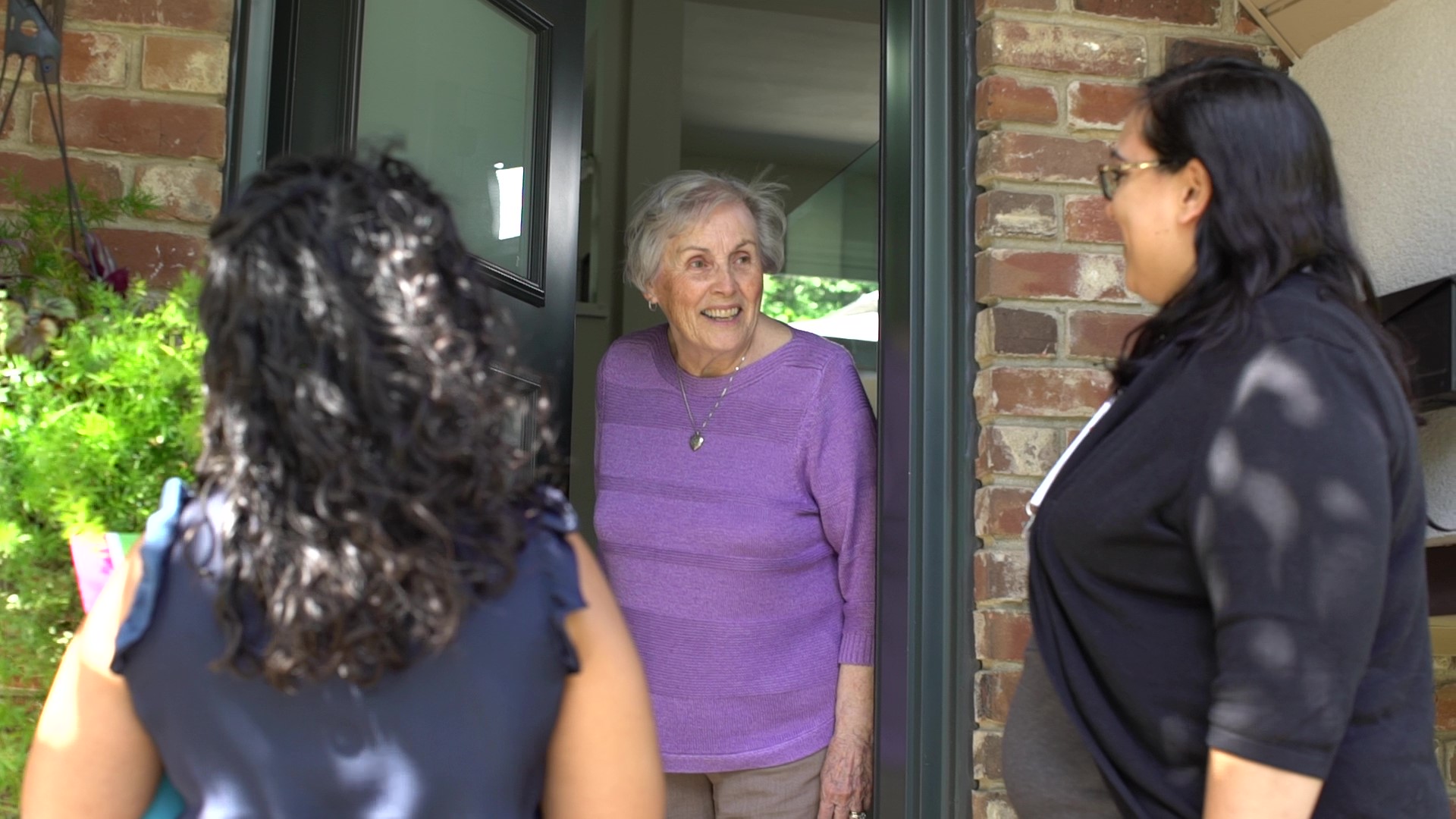Helping older adults stay healthy where they live

In Canada, most expect quality health care available when we need it. But older adults living alone or with mobility issues may have difficulty getting the care and resources they need.
Health TAPESTRY is an innovative, community-based program designed to address these challenges. The program brings together people, communities, and health care teams to enhance the timeliness and quality of care that people receive.
The program involves in-home visits by community volunteers. They learn what matters most to a client, and track their health and life goals with customized software. This information is then passed on to the client’s primary health care team, allowing care providers to learn more about their patients, in order to help them stay healthy longer.
“We usually start our health visits by asking ‘what’s the matter with you?’”, said Doug Oliver, family physician and associate professor in the department of family medicine. “Health TAPESTRY asks ‘what matters to you?’ and those are the gaps we’re trying to fill.”
Health TAPESTRY was developed by researchers and clinicians from across McMaster University’s Faculty of Health Sciences, led by the Department of Family Medicine. Everyone came together with a common goal – to create a better world for older adults in the community.
“When was the last time your family doctor came over to your house and had tea and really understood what was important to you? Family doctors just don’t have that kind of time, but it’s great to have that kind of information from our patients and that’s what the volunteers provide,” said David Price, family physician, professor and chair of the department of family medicine.
The first trial of Health TAPESTRY took place in Hamilton, with promising results: older adults who participated in the program visited their primary care team more and went to the hospital less. They also spent more time walking.
In 2017, the program expanded into six Ontario communities: Sault Ste. Marie, Orangeville, Windsor, Hamilton, Niagara-on-the-Lake, and Harrow. The goal of this phase was to test whether the Health TAPESTRY approach could be adapted to other communities. This trial wrapped up in 2020 and results are forthcoming.
“We know that the health care team is critical to the health of the population, Health TAPESTRY really tries to leverage and innovate within that model”, said Dee Mangin, family physician and professor in the department of family medicine.
“We need to stop thinking about aging as a disease and start thinking about it as a success in Canada,” said Oliver. “By allowing adults to be in charge of their own care, when their care is delivered, where it is delivered, and how it is delivered; that’s how Health TAPESTRY is attempting to make this a brighter world.”
Related News
News Listing

McMaster researchers map maternal and infant health in Morocco with new scoping review
News, Research
July 18, 2024

McMaster Graduate Studies ➚
Monika Dutt receives 2024 Vanier Canada Graduate Scholarship as PhD candidate under supervision of Meredith Vanstone
News, Research
June 24, 2024

